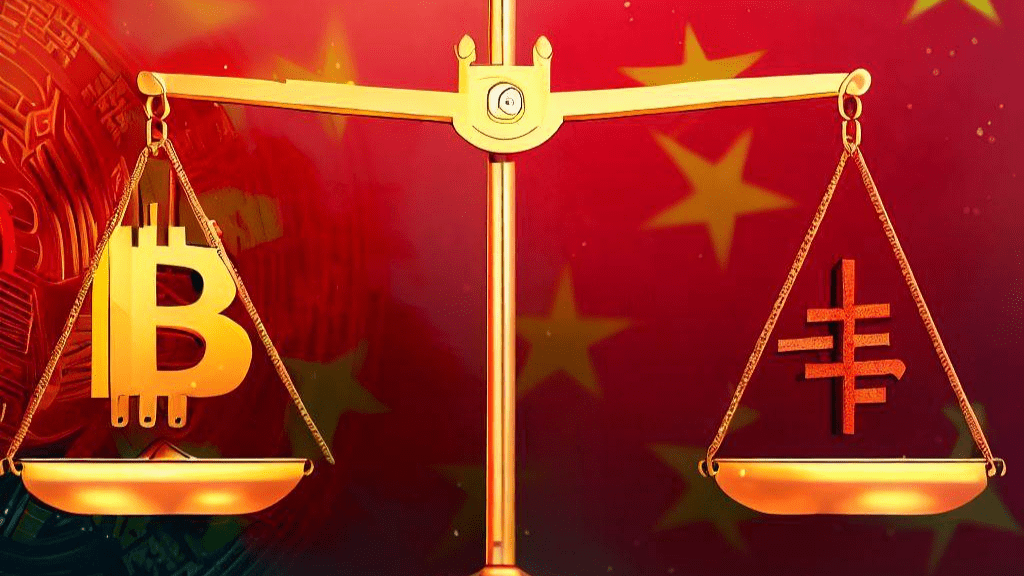
China’s recent slip into deflation for the first time in over two years has sparked discussions about its potential impact on various sectors, including the cryptocurrency market. Analysts are closely monitoring how this economic shift might affect not only China but also global markets, including Bitcoin and commodities.
In a recent episode of Macro Markets, analyst Marcel Pechman delved into the potential implications of China’s deflation on various financial assets. He argued that a deflationary period in China, if it continues, could lead to short to mid-term negative impacts on assets such as Bitcoin, commodities, and stocks that rely on global economic growth.
“Assets that depend on global economic growth or involve significant financial leverage may face a challenging period,” Pechman noted. “Commodities and even Bitcoin could experience short to mid-term negative effects if China’s economic growth trajectory remains uncertain.”
China’s Economy in Deflation:
Last month, China experienced deflationary conditions for the first time in two years, raising concerns about the nation’s economic health. The official consumer price index indicated a 0.3% drop in consumer prices in July compared to the previous year. However, core inflation, which excludes volatile food and energy prices, saw a modest increase to 0.8%, the highest level since January.
This deflationary trend paints a somber picture for China’s economic recovery, which has been facing challenges such as declining exports, high youth unemployment, and a stagnant housing market. The nation is grappling with falling prices across various sectors, from commodities like steel and coal to essential consumer goods.
Deflation’s Risks and Ramifications:
Deflation carries particular risks, especially for economies burdened with high levels of debt like China. It can elevate the cost of servicing debt and discourage borrowing, spending, and investment. The risk of entrenched deflationary expectations is a concern, as it could lead to decreased demand, increased debt burdens, and hinder the effectiveness of traditional stimulus measures.
Economists, including Eswar Prasad, a former head of the International Monetary Fund’s China division, express apprehensions about China’s approach to downplaying deflation risks and its potential to exacerbate the economic downturn.
Federal Reserve’s Balance Sheet Impact:
Pechman also examined the effects of the United States Federal Reserve’s balance sheet expansion, which increased assets by $5 trillion between December 2019 and April 2022. Interestingly, this period correlated with a 38% decline in the S&P 500 index.
He noted that the Federal Reserve’s balance sheet exceeded $8.9 trillion around the same time the stock market index reached its peak of 4,800. The analyst highlighted the challenge posed by the US Treasury Department’s significant deficit, which requires the government to roll over debt rather than allowing it to expire.
Pechman suggested that this deficit-driven scenario might limit the Federal Reserve’s ability to shrink its balance sheet further. The balance sheet reduction has played a role in curbing inflation. However, if the Federal Reserve is compelled to expand its balance sheet again, it could have a significant impact on inflation rates.
Navigating the Uncertainty:
In light of these economic dynamics, Pechman advised individuals holding valuable assets such as Apple shares, land, gold, and Bitcoin to stay resilient and not be swayed by short-term fluctuations in inflation. The interconnectedness of global markets and economies underscores the need for a balanced and informed approach, especially during times of economic uncertainty.
As China grapples with deflation and the world monitors its impact, investors are advised to stay attuned to economic developments, central bank policies, and their potential effects on various financial assets, including cryptocurrencies like Bitcoin.
Get the latest Crypto & Blockchain News in your inbox.